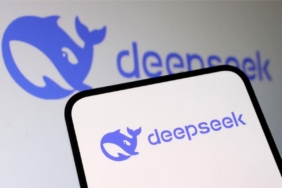The advertising sector is poised for a significant transformation through artificial intelligence, a reality acknowledged by leaders in major tech companies like Google and Meta. Their investment in AI-driven photo and video generation reflects a strategic approach to attract advertisers, who are anticipated to be the initial adopters of these innovative tools. Recently, in an interview with Ben Thompson for Stratechery, Meta CEO Mark Zuckerberg candidly outlined a vision that could potentially upend traditional advertising structures.
Zuckerberg: But there’s still the creative piece, which is basically businesses come to us and they have a sense of what their message is or what their video is or their image, and that’s pretty hard to produce and I think we’re pretty close.
And the more they produce, the better. Because then, you can test it, see what works. Well, what if you could just produce an infinite number?
Zuckerberg: Yeah, or we just make it for them. I mean, obviously, it’ll always be the case that they can come with a suggestion or here’s the creative that they want, especially if they really want to dial it in. But in general, we’re going to get to a point where you’re a business, you come to us, you tell us what your objective is, you connect to your bank account, you don’t need any creative, you don’t need any targeting demographic, you don’t need any measurement, except to be able to read the results that we spit out. I think that’s going to be huge; I think it is a redefinition of the category of advertising.
Zuckerberg’s statements suggest a future where businesses simply express their desire for customers, and Meta manages every aspect of the advertising process. This would include generating images and videos, crafting product descriptions, creating countless ad variations, targeting audiences, measuring performance, and facilitating purchases—all through automated systems powered by AI.
This concept, which I refer to as “infinite creative,” has been hinted at in various demonstrations, notably during Nvidia presentations. However, Zuckerberg’s suggestion of permitting businesses to link their financial accounts and solely analyze the resultant data could dramatically diminish the current advertising landscape. Such a move may pose challenges for established brands and advertising agencies that have meticulously developed systems to verify results amid past controversies of ad fraud and measurement discrepancies.
I reached out to prominent figures within the advertising industry to gauge their reactions to Zuckerberg’s comments and received critical feedback. One agency CEO highlighted concerns regarding brand safety associated with allowing automated creation and optimization of advertisements. Another major worry was the inherent mistrust in the idea of simply accepting results generated by a platform under scrutiny.
A media executive voiced similar skepticism, articulating disdain over the phrase “read the results that we spit out,” suggesting it encapsulates a dismissive approach to traditional advertising relationships and reflects potential hostility toward existing players in the market.
While Meta profits from advertising campaigns targeted at small businesses lacking the budget for large agencies, the implementation of these AI-driven tools could disrupt traditional advertising dynamics. There is a clear indication that as these tensions escalate, the platform economy is on the cusp of profound changes, altering the landscape of advertising as we know it.






